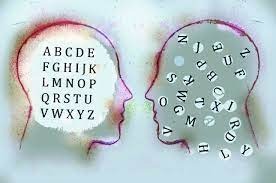Dyslexia is a learning disorder that involves difficulty reading due to problems identifying speech sounds and learning how they relate to letters and words (decoding). Also called a reading disability, dyslexia is a result of individual differences in areas of the brain that process language.
Dyslexia is not due to problems with intelligence, hearing or vision. Most children with dyslexia can succeed in school with tutoring or a specialized education program. Emotional support also plays an important role
Symptoms
Signs of dyslexia can be difficult to recognize before your child enters school, but some early clues may indicate a problem. Once your child reaches school age, your child’s teacher may be the first to notice a problem. Severity varies, but the condition often becomes apparent as a child starts learning to read.
Before school
Signs that a young child may be at risk of dyslexia include:
Late talking
Learning new words slowly
Problems forming words correctly, such as reversing sounds in words or confusing words that sound alike
Problems remembering or naming letters, numbers and colors
Difficulty learning nursery rhymes or playing rhyming games
School age
Once your child is in school, dyslexia symptoms may become more apparent, including:
Reading well below the expected level for age
Problems processing and understanding what is heard
Difficulty finding the right word or forming answers to questions
Problems remembering the sequence of things
Difficulty seeing (and occasionally hearing) similarities and differences in letters and words
Inability to sound out the pronunciation of an unfamiliar word
Difficulty spelling
Spending an unusually long time completing tasks that involve reading or writing
Avoiding activities that involve reading
Teens and adults
Dyslexia signs in teens and adults are a lot like those in children. Some common dyslexia symptoms in teens and adults include:
Difficulty reading, including reading aloud
Slow and labor-intensive reading and writing
Problems spelling
Avoiding activities that involve reading
Mispronouncing names or words, or problems retrieving words
Spending an unusually long time completing tasks that involve reading or writing
Difficulty summarizing a story
Trouble learning a foreign language
Difficulty doing math word problems
TREATMENT
Address the problem early. If you suspect that your child has dyslexia, talk to your child’s health care provider. Early intervention can improve success.
Read aloud with your child. It’s best if you start when your child is young, but it’s never too late to start. Introducing books as a toy to babies encourages fun, learning and social interaction with caregivers. Read stories to your child. Also, try listening to recorded books with your child. When your child is old enough, read the stories together after your child hears them.
Work with your child’s school. Talk to the teacher about how the school will help your child succeed. You are your child’s best advocate.
Encourage reading time. Set aside time each day to read with your child. To improve reading skills, a child must practice reading. Encourage your child to read as skills develop. Also have your child read aloud to you.
Set an example for reading. Designate a time each day to read something of your own while your child reads — this sets an example and supports your child. Show your child that reading can be enjoyable.

































